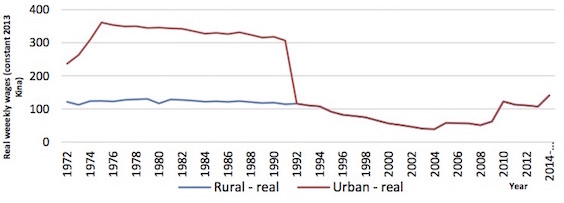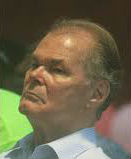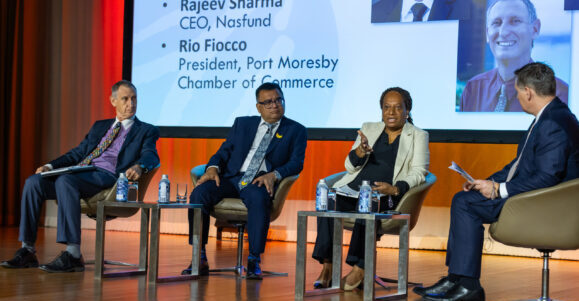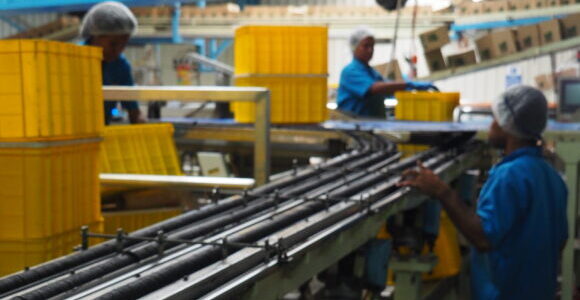Third stage of minimum wage increase for Papua New Guinea workers effective from July
The minimum wage in PNG will rise to K3.50 an hour from 1 July, from the current rate of K3.36.

PNG real minimum wages 1972-2014. Source: Institute of National Affairs
The first rise was in June 2014, from K2.29 to K3.20 an hour. The second stage was implemented a year later, taking the minimum wage to K3.36 an hour.
The July 2016 rise to K3.50 will take the minimum wage to K140 a week, up K12 (K7,280 annually).

The Institute of National Affairs’ Paul Barker
Figures released by the Institute of National Affairs show that the mean average wage in July 2014 across all sectors of the economy was K820.38 a fortnight. This means the minimum wage is 34 per cent of the mean average.
The median (middle point) wage was K769.10. Director of the Institute, Paul Barker, says there is a big difference between pay in the formal and informal sectors. Median wages in the formal sector were K1,250.90 a fortnight, while in the private, unregulated market, they were only K228.57 a fortnight.
About 80,000 workers are expected to benefit from the increases to the minimum wage, although exemptions will be made for workers in the agriculture sector, and for employers who are financially incapable of paying the minimum wage, according to Labour and Industrial Relations Minister Benjamin Poponawa.
Business reaction
While a number of employers, particularly in the National Capital District, have said only a few of their employees are on the minimum, those in rural and regional areas are far more likely to be affected.

LCCI President, Alan McLay. Credit: The Loop
Alan McLay, President of the Lae Chamber of Commerce, says his organisation is not concerned about the imminent rise, adding: ‘it was well known by everyone and this has meant that it has been planned for’.
But Michael Kingston, Managing Director of manufacturer, K K Kingston, said it would ‘push us towards more automation’.
‘I often say that PNG doesn’t have a law and order problem. We are famous for our law and order problems but I don’t think we do have them. What we actually have is an employment problem.
‘Young people who are between 15 and 30 who are unemployed, and have no money, tend to act up.
‘If we want to fix this law and order problem, and we want PNG to develop, then we need to create employment. And basic economics, and supply and demand, teaches us that when you push the price of something up, demand for that thing goes down.
‘Increasing the minimum wage and increasing the cost per unit is not going to do anything to increase employment. If anything, it is going to decrease employment.’






